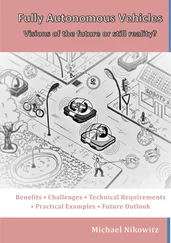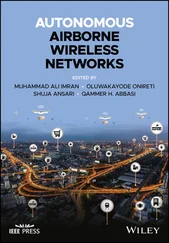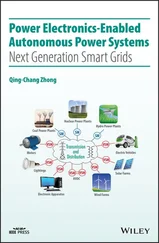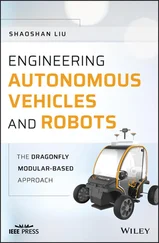“We’re just making donuts!” the admin screamed, holding up a ball of gore. “Why don’t you let us make donuts! Timmo’s bots make… the… best… donuts!”
Jack stared at the pepperoni she had been about to eat, feeling ill.
FALL 2120
At first, Casablanca was everything that Lyle had promised. The African Federation was still young, and the government worried very little about enforcing intellectual property laws, as long as the economy was expanding.
Jack and Lyle rented a flat in the biotech ghetto, a neighborhood whose nickname was self-explanatory. It was near the high, ocean-facing wall around the old medina. Always a middle-class neighborhood, the area had been tended and upgraded over the centuries to retain its traditional Moorish architecture of colorful tiles and hidden courtyards, while also growing a new surface of photovoltaic paint over semipermeable walls that absorbed water and strobed with glowing algae at night. The winding streets looked ancient, but they had been paved with foam. Even the crumbling seams in the walls came from bioconcrete, a mash of water-activated bacteria and epoxies that healed itself as cracks formed.
They took lucrative jobs at a startup that built custom proteins for other businesses, and swore that they would save their best ideas for after-work projects. But so far, they’d been working such long hours that the ideas hadn’t come. That’s when Lyle decided it was time to take an evening off. She brought an expensive red-and-brown blanket home and swirled it around her body. “Let’s get under it together and swear to do something very, very important.”
Most of their clothes were already on the floor by the time Lyle pulled the blanket completely over their heads. They kissed fiercely, yanking each other’s underwear off. The space beneath the caftan grew hot and close with their breathing.
Jack looked into her lover’s eyes, which had gone nearly black in the caftan’s shadow. Lyle’s fingers moved inside her, and Jack kept staring into those eyes, her body swollen with pleasure, thinking that she had never loved anyone this much in her entire life. And then she could no longer focus on anything other than her own pleasure.
Lyle wasn’t much for postorgasm cuddling these days. She threw off the caftan and started talking.
“I’m serious, we can really shake things up here. We should start our own Free Lab, but make it really radical, much more radical than Krish’s.”
Jack didn’t say anything. She was still trying to savor their closeness, pulling Lyle’s thigh between her legs. Lyle rewarded her by throwing her other leg over Jack’s hip, squeezing their bodies together in a pleasurable tangle.
“Don’t you want to do that, Jack?”
Lyle was moving in a way that was increasingly distracting. “Yes,” Jack whispered.
* * *
The first planning meeting for the Casablanca Free Lab, held at a teahouse, was a lot less pleasant than the undercover meeting that had spawned it. Somehow Jack’s call for participation on a couple of local biotech hacker forums had gotten reposted to an artists’ mailing list, and a bunch of poets showed up to argue with them about the true meaning of anarchy. Instead of a practical conversation about renting a space where they could build a wet lab, they had a three-hour shouting match about liberty and recolonialism.
Casablanca had grown wealthy on biotech, but local artists and subversives considered scientific progress equivalent to gentrification. They had a very hard time grasping the idea that science could be radical, and a laboratory could be free.
It took Jack and Lyle a full year of argument, on the net and in person, before they reached the pragmatic stage of renting a space. By that time, they had a pretty good grasp of Darija, and a core group of five people who were willing to put in money and time to set up the lab.
The Twin Center had just been converted into cheap live-work spaces, and the Casablanca Free Lab moved into one of its subbasements. They did this partly because it was a large space with running water, but partly to appease the poets who lived in the upper floors. It was the right move. The poets still liked to remind the engineers gleefully that culture stomped on the head of science, but they had stopped calling them recolonizers—at least, to their faces.
Krish was ecstatic to hear that they had set up the first satellite Free Lab, and tried to help with grant applications.
“Fuck his grants,” grumbled Jack, reading his messages. “We don’t want to be beholden to some economic coalition.” The rest of the collective agreed with her. To distance themselves from Krish’s Free Lab, they would need a new name. They called themselves Signaling Pathway—Signal for short.
“We still need a way to make money,” Lyle pointed out, after they’d spent some time sketching a logo.
“We could charge for memberships,” suggested a volunteer.
“That doesn’t sound very free. What would the poets say?”
Everybody laughed. But it was true: They couldn’t ask for money and call themselves liberators. Subversives were already suspicious enough of science in this town, and you couldn’t very well charge admission to the revolution.
For the first few months at Signal, they deferred the money question. The collective had ponied up enough cash for at least six months’ rent. Plus, they were having fun. Jack was teaching a basic synbio class, showing other residents in the building how to reverse engineer simple organisms. One teenager figured out a way to grow mint in his family’s tiny garden by engineering the plant to use nitrogen more efficiently.
As Signal-related projects flourished, people came from all over the Maghreb to see their space. Local companies donated old fabbers, sequencers, and tissue trellises. Lyle ran weekly meetings where regulars and visitors could mingle to discuss the Free Lab’s mission. It was at one of these weekly meetings that they met Frankie.
Lyle had finally debugged her tattoo, and a sequence of flowers danced on her freshly shorn head, matching the illuminated flowers that crawled up and down her dress. Meetings always began with beer and a foul-tasting drink called Club-Mate, an old tradition that went back to hackerspaces of the twenty-first century. Clumped around the bench were kids and retirees, rich biotech professionals and info anarchists who lived in squats. Each person introduced themselves, using a real name or pseudonym as they wished.
Frankie looked like a typical engineer in her starched shirt and casual khakis. Her brown skin and black hair made it more likely that she was local, but she could just as easily be from the AU or the Zone. She said she built things with Adder.
After the meeting, Lyle gave the newbies a tour of the lab. Jack checked on some sequence, while across the room Lyle’s bright dress grew a comet tail of admiring hackers. When Jack looked up from her readout, Frankie was standing next to her. “I need to talk to you in private,” she said.
“It’s private here.”
Frankie just looked at her. “Do you have a faraday room?”
Jack was beginning to wonder if this woman was one of the occasional crazies they got at Signal, a person gone paranoid in the pursuit of ambiguously legal science.
“No,” she said gently. “But we are several floors underground. I’m not sure what you’re worried about, but the people here are pretty cool.”
“I’m worried that the IPC has bugged your shit.” She waved her hand at the churning sequencers, then brought it to rest on the tablet Jack had folded up and strapped to her belt. “Do you know how easy it is to turn this thing into a bug?”
Definitely crazy. Jack tried to be nonchalant. “I’m not worried about it.”
Читать дальше
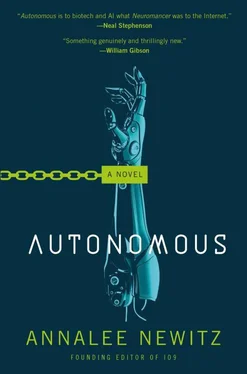


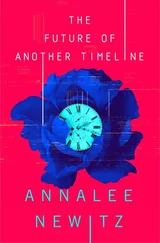
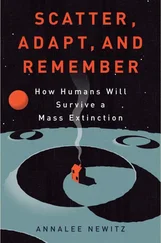


![Аннали Ньюиц - Автономность [litres]](/books/424681/annali-nyuic-avtonomnost-litres-thumb.webp)

